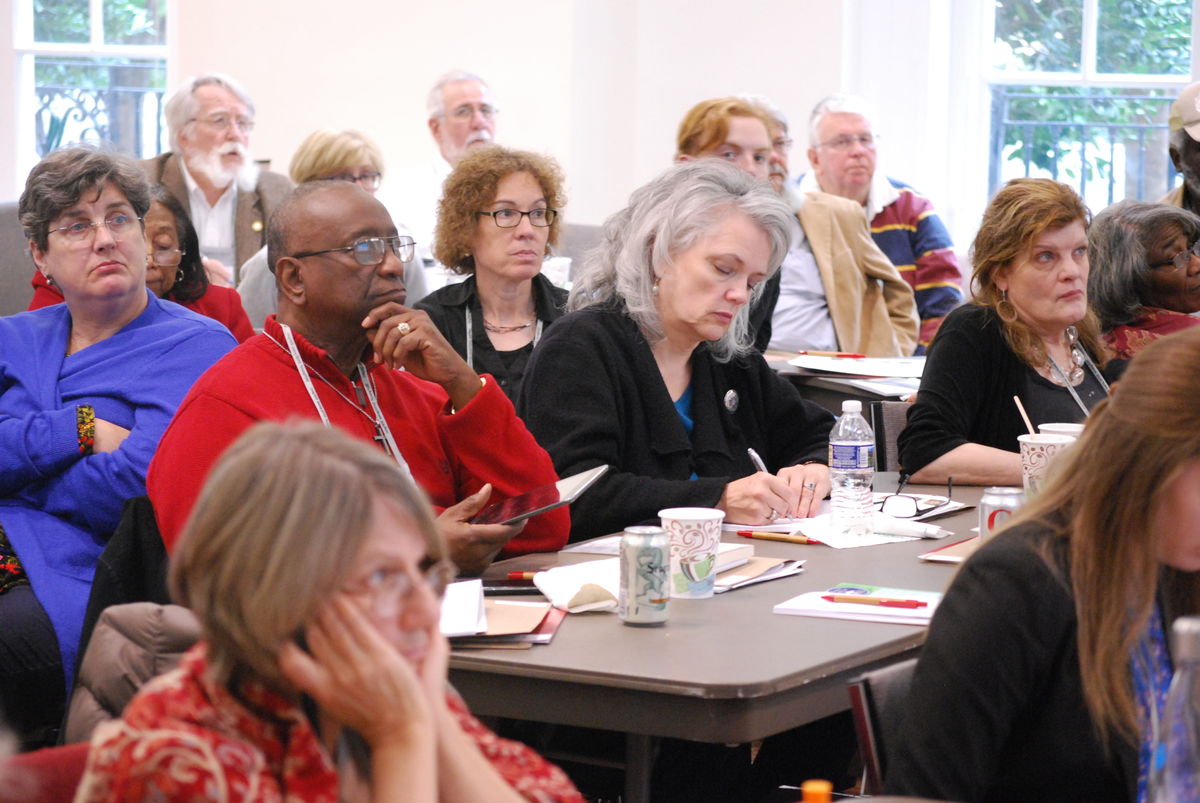Faithful Finance
All economic systems are under the judgement of God no less than other facets of the created order.

Money is an integral part of today’s economy. How we use our financial resources — as individuals, institutions and communities — is a reflection of our values.
We understand, as Christians, our responsibility to be faithful stewards of that which God has entrusted to our care and to use our resources in ways that build the beloved community.
National budgets are moral documents. They are a testament to national priorities.
United Methodist Book of Resolutions, 6126Economic inequality and persistent poverty are in stark contrast to our faithful vision of justice and abundance. National budgets — which are moral documents — too often divert resources to war-making at the expense of programs that support the common good. And while systems of credit and finance have brought efficiencies and consumer benefits, these developments have also given rise to abusive and predatory behavior that challenge the conscience of Christians.
As the church seeks to model faithful use of our own resources, we will continue to advocate for policies and practices that reflect our values of stewardship, sufficiency and justice.
What the Bible and The United Methodist Church Say:
God commands us to be prudent with our use of resources, including financial resources. The Bible includes particular warnings against financial exploitation – of workers, of borrowers, of the poor.
“If you lend money to my people, to the poor among you, you shall not deal with them as a creditor; you shall not exact interest from them.” (Exodus 22:25-26) And consistently, resources are seen not as treasure to be stored up for personal gain, but gifts to be used for the common good. “But seek the welfare of the city where I have sent you … and pray to the Lord on its behalf, for in its welfare you will have your welfare.” (Jeremiah 29:7)
From his anger at the money-changers in the temple (Matthew 21:12-13) to his warnings of the perils of greed and wealth (Luke 6:24-25), Jesus teaches us that life is not to be measured by possessions but by the love demonstrated to one another in community.
We recognize the responsibility of governments to develop and implement sound fiscal and monetary polices.
United Methodist Social Principles, ¶163.In the General Rules, John Wesley warned Methodists against greedy or self-indulgent behaviors, particularly with respect to the use of money. (Book of Discipline, ¶104)
Today, The United Methodist Church offers principles on faithful lending, investing and budgeting to guide our personal, institutional and civic life. Common among these principles are stewardship, community, protecting the poor and vulnerable, and justice.
The United Methodist Church affirms that “National budgets are moral documents. They are a testament to national priorities. May it be that such budgets invest in life-giving and life-sustaining priorities, indeed the things that make for peace.” (Book of Resolutions, 6129)
The Church also understands the importance of using its own resources wisely and “urges all of its member institutions to invest in a sustainable and socially responsible manner” (Book of Resolutions, 4071)
Three things you can do:
- Examine your personal spending habits, church budgets and investment decisions to see if they reflect your values and our common commitment to community.
- Learn about your government’s tax and spending decisions and contact your elected officials to remind them that budgets are moral documents and should uplift the common good, support the poor and vulnerable and build peace in community and among nations.
- Advocate for just policies to require transparency and limit usurious interest rates and fees. In the United States, connect with current campaigns through the Center for Responsible Lending.